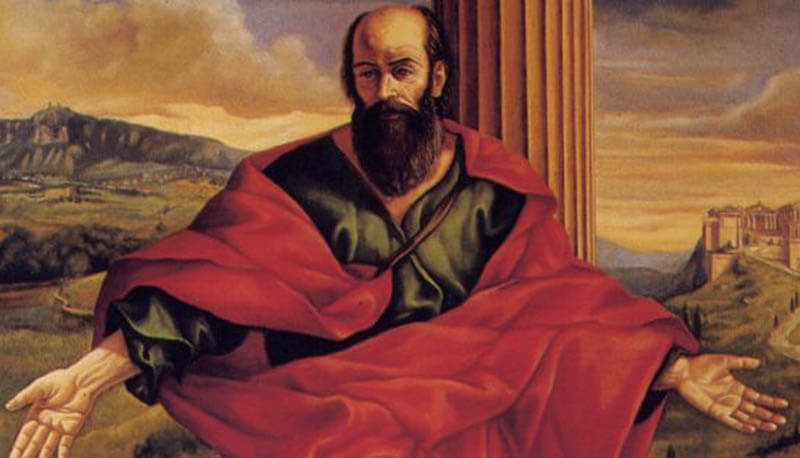Meet the apostle Paul, once Saul of Tarsus

The apostle Paul, who began as one of the most zealous enemies of Christianity, was chosen by hand by Jesus Christ to become the most ardent messenger of the Gospel. Paul tirelessly traveled through the ancient world, bringing the message of salvation to the Gentiles. Paul stands as one of the all-time giants of Christianity.
Realizations of the apostle Paul
When Saul of Tarsus, who was later renamed Paul, saw Jesus resurrected on the road to Damascus, Saul converted to Christianity. He made three long missionary journeys throughout the Roman Empire, founding churches, preaching the Gospel and giving strength and encouragement to the first Christians.
Of the 27 books of the New Testament, Paul is credited as the author of 13 of them. While proud of his Jewish heritage, Paul saw that the gospel was also for the gentiles. Paul was martyred for his faith in Christ by the Romans, around 64 or 65 AD
Strengths of the apostle Paul
Paul had a brilliant mind, an impressive knowledge of philosophy and religion and could argue with the most educated scholars of his time. At the same time, his clear and understandable explanation of the gospel made his letters to the first churches the foundation of Christian theology. Tradition interprets Paul as a physically small man, but has endured enormous physical difficulties in his missionary journeys. His perseverance in the face of danger and persecution has inspired countless missionaries since then.
The weaknesses of the apostle Paul
Prior to his conversion, Paul approved Stephen's stoning (Acts 7:58) and was a ruthless persecutor of the early church.
Life lessons
God can change anyone. God gave Paul the strength, wisdom and endurance to carry out the mission that Jesus had entrusted to him. One of Paul's most famous statements is: "I can do everything through Christ who strengthens me" (Philippians 4:13, NKJV), reminding us that our power to live the Christian life comes from God, not from ourselves.
Paul also related a "thorn in his flesh" that prevented him from becoming presumptuous about the priceless privilege that God had entrusted to him. In saying "Because when I am weak, then I am strong" (2 Corinthians 12: 2, NIV), Paul was sharing one of the greatest secrets of faithfulness: absolute dependence on God.
Much of the Protestant Reformation was based on Paul's teaching that people are saved by grace, not works: "Because it is by grace that you were saved, by faith - and this is not by yourself, it is the gift of God - ”(Ephesians 2: 8, NIV) This truth frees us to stop fighting to be good enough and to rejoice instead of our salvation, obtained from the loving sacrifice of Jesus Christ.
Home town
Tarsus, in Cilicia, in present-day southern Turkey.
Reference to the apostle Paul in the Bible
Acts 9-28; Romans, 1 Corinthians, 2 Corinthians, Galatians, Ephesians, Philippians, Colossians, 1 Thessalonians, 1 Timothy, 2 Timothy, Titus, Philemon, 2 Peter 3:15.
Occupation
Pharisee, curtain maker, Christian evangelist, missionary, scripture writer.
Key verses
Acts 9: 15-16
But the Lord said to Ananias: “Go! This man is my chosen instrument to proclaim my name to the Gentiles, their kings and the people of Israel. I will show him how much he must suffer for my name. " (NIV)
Romans 5: 1
Therefore, because we have been justified through faith, we have peace with God through our Lord Jesus Christ (NIV)
Galatians 6: 7-10
Don't be fooled: God cannot be mocked. A man reaps what he sows. Whoever sows to please his own flesh will reap destruction from the flesh; whoever sows to please the Spirit will reap eternal life from the Spirit. Let's not tire of doing good, because at the right time we will reap a crop if we don't give up. Therefore, because we have the opportunity, we do good to all people, especially to those who belong to the family of believers. (NIV)
2 Timothy 4: 7
I fought the good fight, I finished the race, I kept the faith. (NIV)